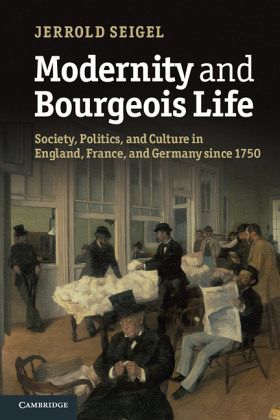
Modernity and Bourgeois Life
Society, Politics, and Culture in England, France and Germany Since 1750
Versandkostenfrei!
Versandfertig in über 4 Wochen
38,99 €
inkl. MwSt.
Weitere Ausgaben:

PAYBACK Punkte
19 °P sammeln!
To be modern may mean many different things, but for nineteenth-century Europeans 'modernity' suggested a new form of life in which bourgeois activities, people, attitudes and values all played key roles. Jerrold Seigel's panoramic new history offers a magisterial and highly original account of the ties between modernity and bourgeois life, arguing that they can be best understood not in terms of the rise and fall of social classes, but as features of a common participation in expanding and thickening 'networks of means' that linked together distant energies and resources across economic, poli...
To be modern may mean many different things, but for nineteenth-century Europeans 'modernity' suggested a new form of life in which bourgeois activities, people, attitudes and values all played key roles. Jerrold Seigel's panoramic new history offers a magisterial and highly original account of the ties between modernity and bourgeois life, arguing that they can be best understood not in terms of the rise and fall of social classes, but as features of a common participation in expanding and thickening 'networks of means' that linked together distant energies and resources across economic, political and cultural life. Exploring the different configurations of these networks in England, France and Germany, he shows how their patterns gave rise to distinctive forms of modernity in each country and shaped the rhythm and nature of change across spheres as diverse as politics, money and finance, gender relations, morality, and literary, artistic and musical life.













